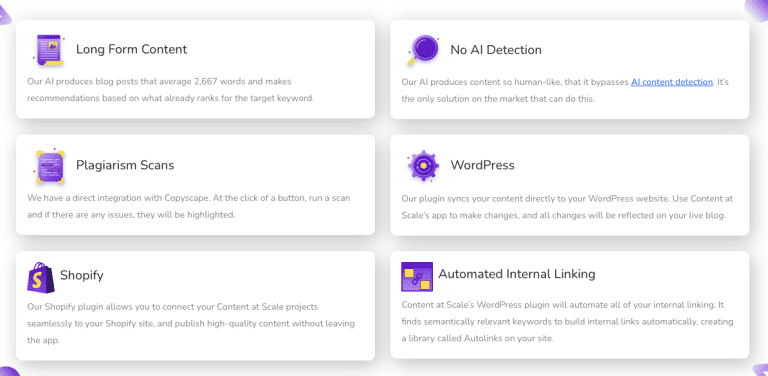18 Stunning Blogging Statistics that Prove Why Blogging is Important

Wondering why is blogging important? What a blog can do for your business may astound you. In this post, we’ll share 18 stunning blogging statistics for 2019.
“Born” in the late 90s, blogging has made its way to becoming an integral part of online culture nowadays and is highly unlikely to go anywhere in the foreseeable future.
And why would it, when it only brings benefits to a brand?
For starters, blogging makes it possible for a business to create a personality online.
We all know the first thing we do after hearing about a company is reaching for our phones to Google them and find out more about them.
Studies show 70% of consumers learn about a company through articles, rather than ads. Therefore, you can use your blog to set the tone and to use it to your advantage: whether it is to market your product, share company news or provide information to your customers.
On the other hand, as blogging has grown in popularity and ease, it has made possible for people to even create a businesses from blogging, which is more unconventional (and might I say, innovative) as opposed to having a business first and then blog.
Blogging is ideal for marketing initially because it offers a way for consumers and businesses to interact.
Here are 18 other compelling reasons and blogging statistics that prove why blogging is important…
1. People Trust Blogs
Turns out our 3+ hours spent on writing a blog post are not gone to waste. Apart from the fact that people love reading blogs, they also trust them!
Studies show that 81% of U.S. customers trust advice and information from blogs. Whether it is to solve a specific problem, figure out how to do something, or to stay informed about a certain topic, people find blog content credible.
Furthermore, 90% of consumers find customer content useful.
2. Blogging Improves SEO
Blogging is an indirect way to drive traffic to your website. You have a 434% higher chance of being ranked highly on search engines if you just blog.
That is because your blog is a collection of articles, keywords, and expertise that you update regularly (or so we hope), and the rewarding thing is that you’re doing what any reliable search engine optimization (SEO) campaign demands.
Besides, 75% of users don’t scroll beyond the first page of search results, so ranking is important. The better the traffic, the better the ranking.
3. Blogging Helps With Link Building
Companies that blog have as much as 97% more inbound links, as Techclient reports.
This generally means sites with blogs have a greater chance of ending up on the first page of search engines like Google when consumers search for relevant keywords.
4. Having a Blog = More Leads
B2B marketers that use blogs receive 67% more leads than those that do not, according to HuffPost.
Moreover, blogging is also a great facilitator for small businesses. Those that blog generate 126% more leads than those who don’t.
On the other side, a survey from Content Marketing Institute that tested organizational goals for B2B Content Marketing found that 80% of B2B marketers will focus on lead generation as a content marketing goal over the next 12 months.
5. Blogs Add Income Streams
If you only decide to start a blogging career, the rest is pretty good. Once your blog grows in terms of number of visitors, there are various ways to make money out of it and turn it into something that offers additional revenue.
You can try display advertising (think Google Ads), affiliate marketing, native advertising and sponsored content.
6. Blogs Are Cheap
The only thing blogging costs you: your time.
The best software to use when blogging is WordPress, which is an open source, FREE software, and there are lots of amazing free themes to get you started.
The free theme we recommend is Make by Theme Foundry. It’s an excellent drag and drop theme that allows you to completely customize your site.
7. Blogging is Relatively Easy
Most blogging platforms – besides being free – are simple to use. It’s not like you need a college degree to blog. Basically, all you do is copy, paste, type, drag & drop and upload, and voila! you got yourself a professional looking blog.
There are also tools every blogger should know about that facilitate every step of the way, and the best is that most of them are free!
Plus, blogging doesn’t have to be a full-time job in an office. It can be done remotely and you can choose your own hours, which makes it very flexible.
8. Blogging Grows Your Influence
61% of US costumers have agreed to have made a purchase based on a blog post or follow advice given by a blogger.
For example, a mom blog raving about a baby carrier is indirectly promoting it to other women… those women are far more likely to buy the baby carrier because someone they know, like and trust recommended it.
9. Blogging is the 2nd Most Used Content Marketing Tactic by B2B Marketers
According to the 7th Annual B2B Content Marketing Benchmarks, Budgets, and Trends-North America report, when asked ‘Which content marketing tactics does your organization use?’ 82% of B2B marketers said that blogging is the one they use most, left behind only by social media content with a 3% higher percentage.
10. Guest Blogging = Free Publicity
Guest blogging, on the other side (writing blog posts for other people’s websites), started as a great way to improve search engine results but now a mainstream marketing strategy, used by almost all savvy marketers. As said from someone who has written over 5000 blog posts:
“Not only can guest blogging help brands gather more online followers and long-term customers, but it also can be a great way to network with others in the business world, leading to even better opportunities down the line.”
11. Blogging is the Most Valuable Type of Content Marketing
37% of marketers say that blogs are the most valuable type of content marketing. That should be convincing enough, shouldn’t it?
If it wasn’t then maybe this will: 52% of respondents on a recent content marketing survey agreed that blogging is their most critical content marketing tactic.
Blogging was followed by email newsletters (40%), social media content (40%), then ebooks, in-person events, and webinars. As for video, only 30% of respondents consider video to be vital.
12. Blogging Attracts Your Ideal Audience
77% of all internet users read blogs, so you’ll surely find an audience.
6.7 million people blog on blogging sites: most bloggers (53.3%) are 21 to 35 year-olds, and the majority are females. but don’t let that discourage you. There’s a place for everyone!
Finally, an advice from one blogger to another: You shouldn’t focus on having a great blog, but rather focus on producing a blog that’s great for your readers.
13. Everyone Is Doing It
Your competition too, which means if you’re not blogging, you’re behind.
You’re missing out on a lot of benefits just by not having a blog. As Forbes states,
“Your competition has better SEO, more leads, a wider network, a higher number of links, and most likely more customers than you do just because they have a blog and you don’t.”
14. Blogging Helps You Get Found Online
As we said earlier, your customer’s first contact with you is digital. The more qualitative the blog, the better the SEO, which leads to better ranking in search results. And the better ranking, the easier to get found.
15. You Can Tie Blogging to Bigger Initiatives
In an article on why good blogs go bad, one of the issues mentioned was that when a blog isn’t tied to bigger initiatives, it simply stagnates.
Further on it’s said that a blog should serve as a content hub for a department, team, or entire organization.
For example, if you have a new product launch, you can think about what kind of problems that your new feature or service solves, and then address those on your blog so that it aligns with your product.
16. Blogs Are the Best Place for In-Depth Content
When it comes to elaborating in-depth on a subject, long-form content (which is 2000 words or more) performs systematically well.
We are aware that people want detailed answers, or they’ll rather move on a new site. One way to build credibility is to provide far extra information.
17. Blogs Build Community
The finishing thing to do after creating an outstanding blog is to cultivate a community around it.
A strong community of fans helps to generate traffic to your blog regularly, AND it increases the chances of them linking back to your posts.
Moreover, their comments help to position your blog as an “authority blog.” As Amber Naslund said,
“Quit counting fans, followers, and blog subscribers like bottle caps. Think instead about what you’re hoping to achieve with and through the community that actually cares about what you’re doing.”
18. Blogs Offer More Value for Free
Instead of sending out marketing emails, trying to sell your product or services, use blogging! It is a way of offering something that isn’t salesy, yet adds extra value for your clients or customers.
You are giving them your thoughts and ideas to read for free. But, it will still benefit you because giving a little something away for free is a good way to warm people up.
Conclusion
Blogs have a huge impact on this generation, but to get the most out of it takes a lot of planning, collaboration, and consistency. These elements are essential to maintaining a good blog.
All in all, blogging is surely the next big thing! It helps you get found online, build trust with readers, and turn them into customers.
It’s highly effective. So why not give it a go and make it your #1 digital marketing strategy this year?
Dafina Zymeri is passionate about reading, writing, and self-development. She aims to make a difference with her writing and does it by intertwining her passions into helping mothers return to the workforce. She writes for SAHMjobs, which is a job portal designed to bring together stay at home moms and recruiters.
Related posts:
Kartra Review | Kartra Pricing | GoHighLevel Review | GoHighLevel Pricing | Best Systeme.io Alternatives
Disclosure: We may earn commissions if you buy via links on our website. Commissions don’t affect our opinions or evaluations. We’re also an independent affiliate of many platforms, including ClickFunnels, Kartra, GoHighLevel, Podia, Northwest Registered Agent, and others. We’re not employees of these services. We receive referral payments from them, and the opinions expressed here are our own and are not official statements of these companies.





